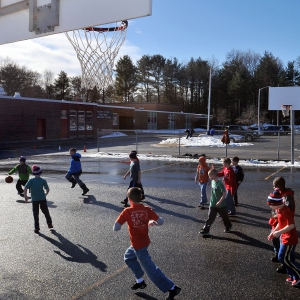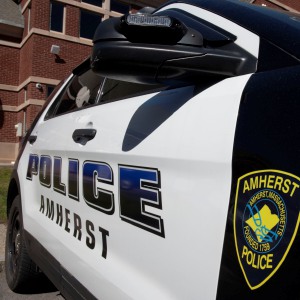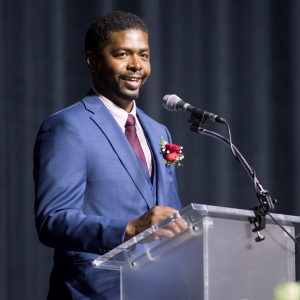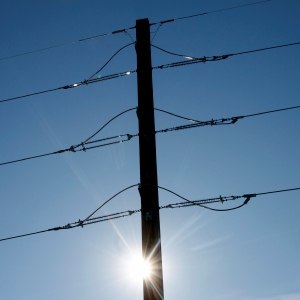Editorial: Decisions about Native American mascots should remain local
| Published: 06-14-2017 7:59 PM |
A statewide bill that would ban the use of Native American mascots in public schools is generating strong opinions on both sides of the issue. That’s no surprise, based on the lengthy debate by the Gill-Montague School Committee before it got rid of the “Indian” mascot.
The push for a statewide ban comes after the town of Tewksbury rebuffed efforts to change the name of its high school mascot, the “Redmen.” Residents who want to ditch the “Redmen” persuaded their state lawmakers to go over the head of local officials to introduce the bill, which was the subject of a legislative committee hearing last week.
Both sides laid out arguments that are familiar to anyone who has been following the Turners Falls High School debate for the past several months — a debate that doesn’t seem to have abated even as the school committee moves forward with selecting a new mascot.
Addressing the Legislature’s Education Committee, supporters of the bill said Native American mascots can be demeaning and do not represent the culture and history of the country’s indigenous people.
Jason Packineau, of Lincoln, an enrolled citizen of the Three Affiliated Tribes of North Dakota and community coordinator of the Native American Program at Harvard, was among those testifying in favor of the bill. He said the mascots limited Native Americans’ control over their identities, and it is difficult for people like him to register their opposition in communities where they do not live.
Opponents of a statewide ban countered that the mascots honor local history and are a longstanding contributor to a community’s identity.
The bill, S291, defines a Native American mascot as a “name, symbol, or image that depicts or refers to an American Indian tribe, individual, custom or tradition that is used by a public school as a mascot, nickname, logo, letterhead or team name.”
The bill gives specific examples, including “Redskins,” “Savages,” “Indians,” “Indianettes,” “Chiefs,” “Chieftains,” “Braves” or “Redmen.”
Article continues after...
Yesterday's Most Read Articles
 Holyoke man finds bear paw in his yard
Holyoke man finds bear paw in his yard
 Boyfriend accused in slaying of Hampden sheriff’s assistant, former legislator’s top aide
Boyfriend accused in slaying of Hampden sheriff’s assistant, former legislator’s top aide
 Three finalists named for Ryan Road School principal in Northampton
Three finalists named for Ryan Road School principal in Northampton
 Developer pitches new commercial building on Route 9 in Hadley
Developer pitches new commercial building on Route 9 in Hadley
 Two men dump milk, orange juice over themselves at Amherst convenience store
Two men dump milk, orange juice over themselves at Amherst convenience store
 Sadiq to leave Amherst middle school principal role
Sadiq to leave Amherst middle school principal role
The same day as the legislative hearing, Senate President Stanley Rosenberg of Amherst, whose district includes Turners Falls, came out against the statewide ban, saying the issue should be decided at the local level.
“It’s really about local standards,” Rosenberg said during a WGBH radio interview.
Rosenberg joins Sen. Barbara L’Italien, D-Andover, who filed the Tewksbury bill, but now says she believes the issue should be handled at the local level.
We agree with Rosenberg and L’Italien on this and are sorry that L’Italien bothered to introduce the bill in the first place. Passing this bill would make what should be a local decision into a top-down mandate from the Statehouse. Some mascot names seem more problematic than others. But that should be for the local communities that use them to decide.
Gov. Charlie Baker last week told reporters he would “follow the lead of the Legislature.” And we think the Legislature should let officials in the 40 or so localities still using Native American mascots decide for themselves.
We’re still not sure how this story is going to end in Turners Falls, considering that voters in Montague backed their former mascot 3-1 in a nonbinding referendum after the school committee vote.
“I don’t think anybody should use anything as a mascot in a derogatory sense,” Baker said. But as the Turners Falls debate shows, “derogatory” can be in the ear of the beholder. None of those loyal to Native American mascots believes they are showing disrespect.
These are complex decisions rooted in decades of history and community sensibilities. We hope the Legislature does the respectful thing and leaves this to local school leaders and residents to decide.

 Guest columnist Mariel E. Addis: Under seige from all sides
Guest columnist Mariel E. Addis: Under seige from all sides Columnist Johanna Neumann: Reaping the rewards of rooftop solar
Columnist Johanna Neumann: Reaping the rewards of rooftop solar Julia Riseman: Join Friends of Northampton Trails
Julia Riseman: Join Friends of Northampton Trails Justine McCarthy and Ed Lamoureux: Political will needed to benefit from new power line technology
Justine McCarthy and Ed Lamoureux: Political will needed to benefit from new power line technology
